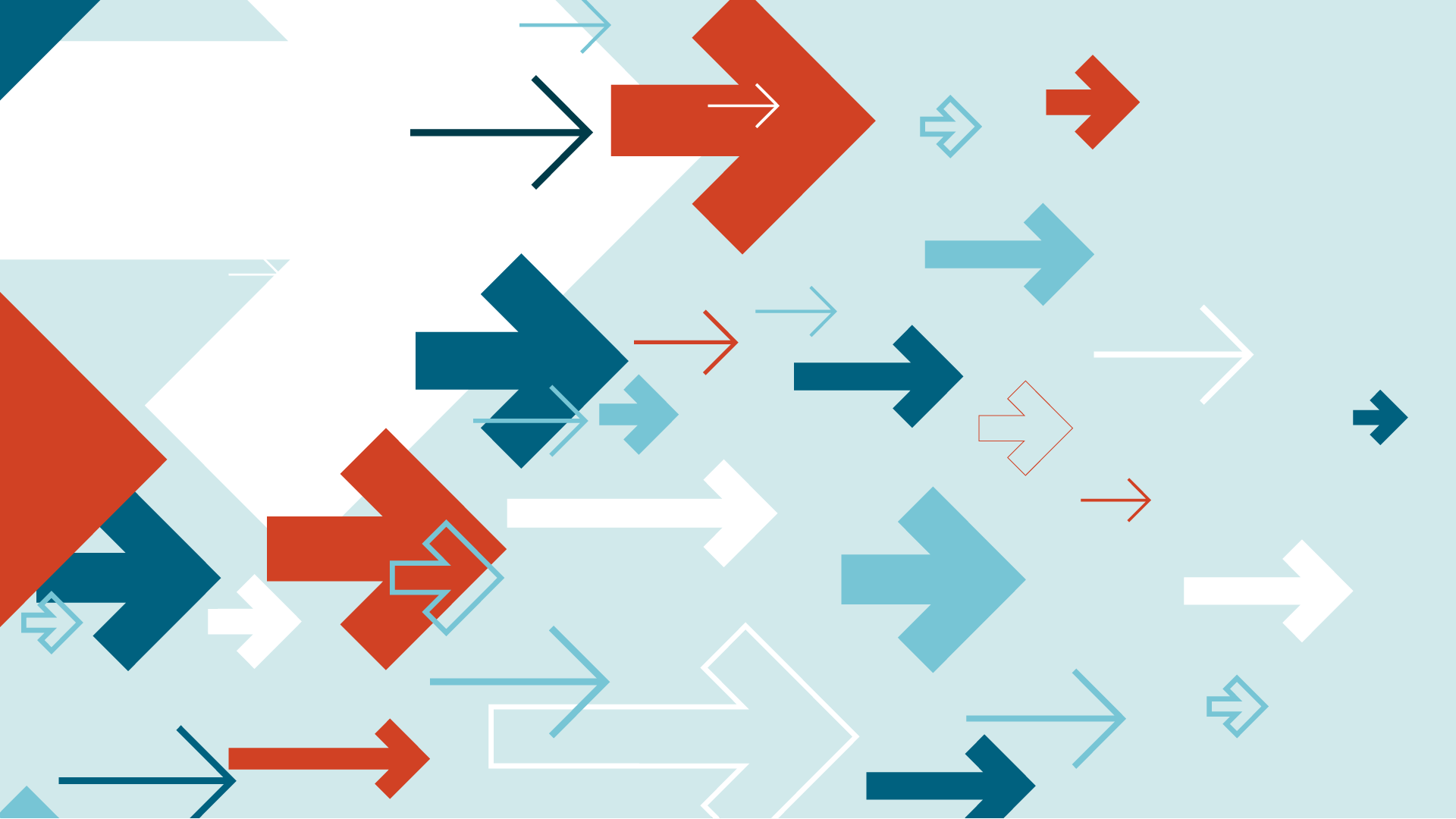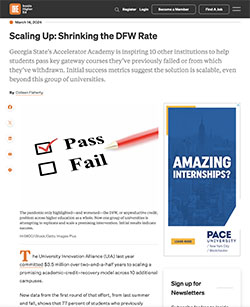
Scaling Up: Shrinking the DFW Rate

The University Innovation Alliance (UIA) last year committed $3.5 million over two-and-a-half years to scaling a promising academic-credit–recovery model across 10 additional campuses.
Now data from the first round of that effort, from last summer and fall, shows that 77 percent of students who previously received grades of D or F or who withdrew from a course succeeded in their efforts to retake that course. Prior to the intervention, course retake rates were at 55 percent, amounting to an increase of 22 percentage points in course retake success.
Retention was also high, at 85 percent for students retained in the fall after completing their summer accelerator course.
To Bridget Burns, founding CEO of UIA, the results are highly promising—and high-stakes—in that they point to a scalable solution to education’s unproductive student-credit problem.
“If we don’t move forward to try and figure this out from a national kind of laboratory framework, the default setting for our sector is, ‘We just hope it gets better,’” she says. “And hope is an ineffective strategy when we’re talking about persistent DFW rates that have really accelerated, especially on the heels of COVID.”


